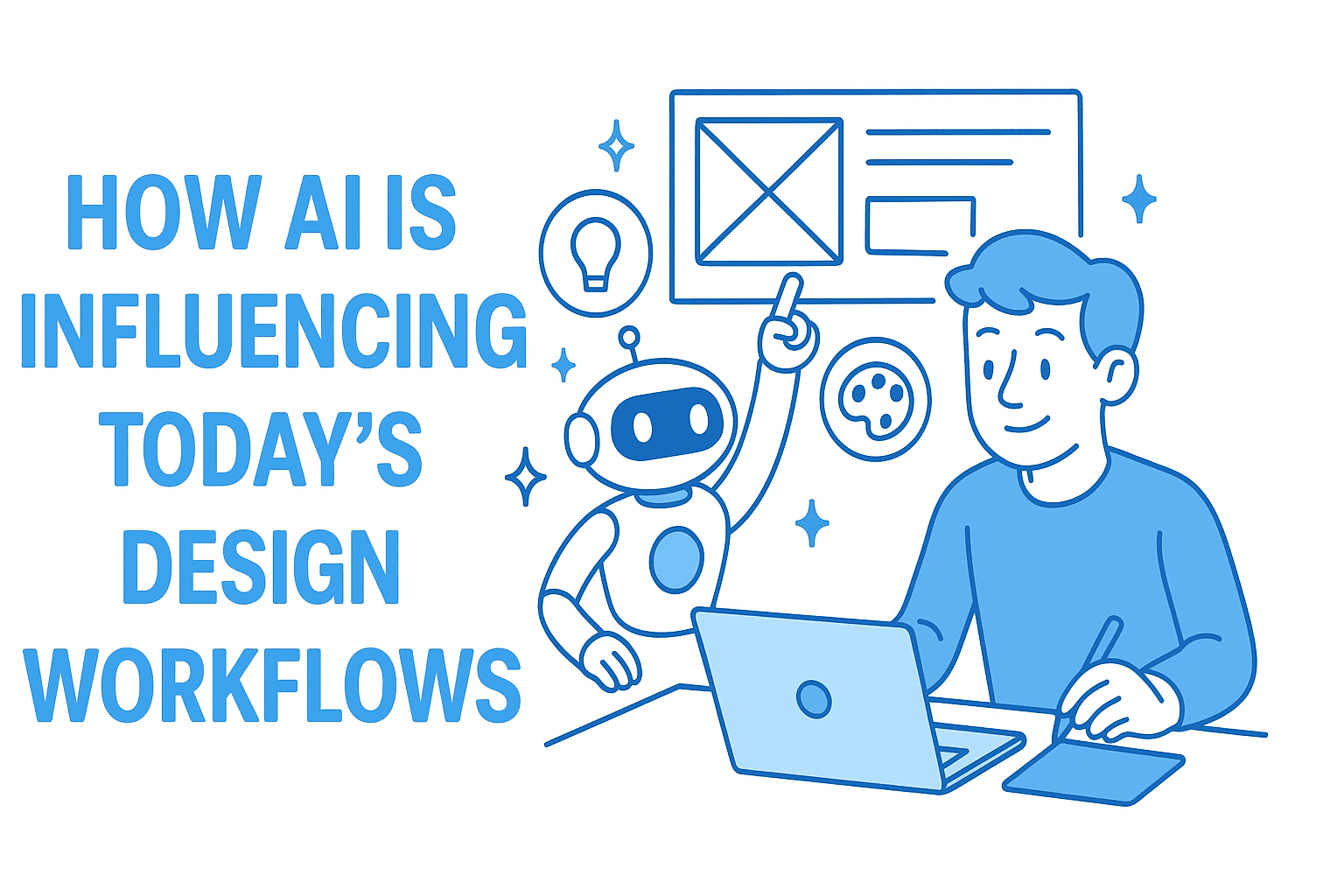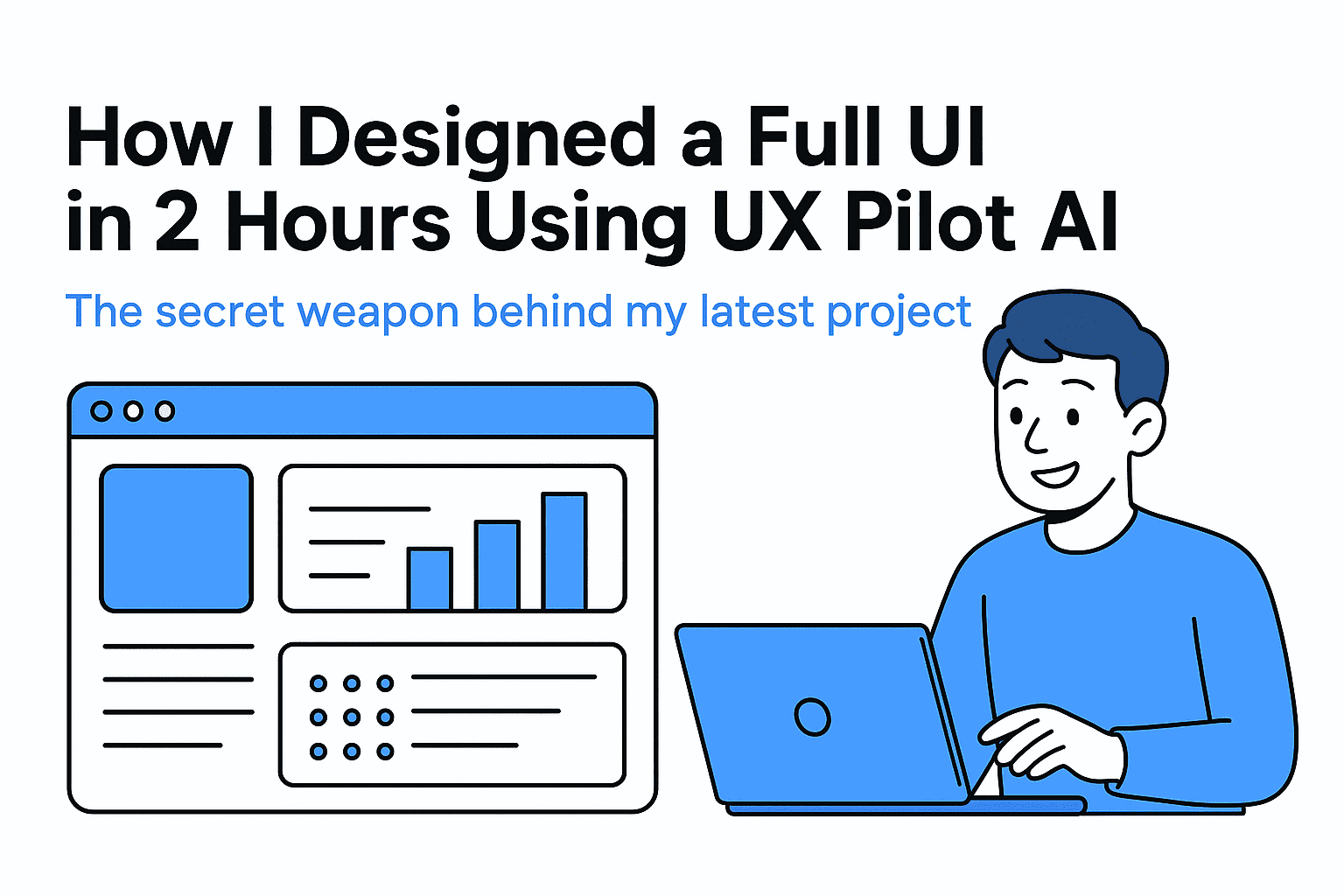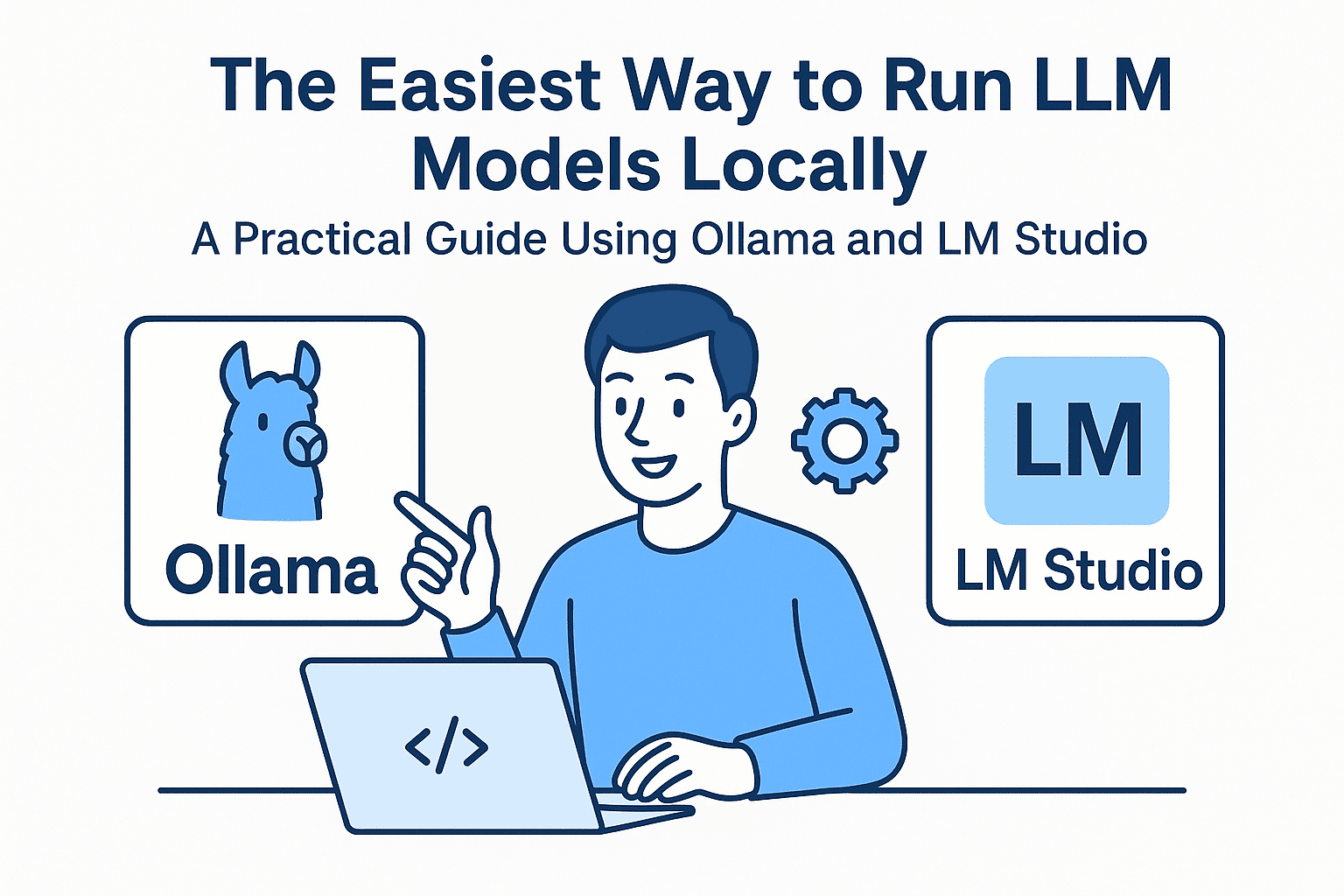AI isn’t just a trend anymore. It’s part of the design team now.
From logos to full web layouts, AI tools are helping designers move faster, get inspired, and create smarter. It's changing how things are done behind the scenes. And in some cases, it’s even suggesting what to design next.
Let’s dive into how exactly AI is shaking up design workflows today.
The Old Workflow
Before AI?
- Brainstorming dragged on.
- Wireframes were built from scratch.
- Color schemes needed manual testing.
- Designers had to hunt for inspiration.
- Localization took days or even weeks.
Now? That’s all changing.
How AI Fits Into the New Workflow
1. AI as the Creative Partner
Hit a creative block? AI can help spark ideas.
Tools like Midjourney or Adobe Firefly let designers type a few words… and get dozens of visuals. From mood boards to branding directions, AI gives options fast.
It's like having a digital intern who never runs out of ideas.
2. Faster Prototyping
Designers no longer need to sketch every single screen manually.
Now, you can:
- Describe a screen layout in plain English.
- Let AI generate wireframes and even components.
- Use tools like Uizard to turn hand-drawn wireframes into real designs.
Time saved = energy spent on refining the experience.
3. Smart Design Systems
Imagine a system that learns how you design… and helps you keep everything consistent.
With AI, design systems now:
- Suggest matching components.
- Flag inconsistent styles.
- Auto-adjust layouts for responsiveness.
Consistency doesn’t have to be a chore anymore.
4. AI in UX Writing
Good design includes good copy. And AI helps with that too.
Whether it's:
- Writing a CTA
- Explaining a feature
- Creating onboarding text
…tools like ChatGPT can do it quickly, and in the tone you want.
Need it in Arabic? French? AI’s got that covered too.
5. Automated Localization
Designing for multiple regions used to mean:
- Duplicating pages
- Finding translators
- Adjusting spacing for different languages
Now, AI can:
- Translate content
- Adjust layout for right-to-left scripts
- Swap visuals that make more sense for local cultures
It’s fast, smart, and much cheaper than traditional localization.
6. Accessibility Checks
AI tools now help flag:
- Poor contrast
- Missing alt texts
- Unreadable fonts
This makes it easier to build inclusive designs, without relying only on manual checks.
Real-World Tools Designers Are Using
Here's a quick list of AI tools making waves in design:
| Tool | What It Does |
|---|---|
| Figma AI | Suggests layouts, edits copy, and fixes inconsistencies |
| Adobe Firefly | Generates images, graphics, and backgrounds |
| RunwayML | Helps with video editing and motion graphics |
| UX Pilot | Turns sketches into real UI designs |
| Khroma | AI-generated color palettes |
| Framer AI | Builds full landing pages from text prompts |
Will AI Replace Designers?
Short answer: No.
AI helps with the what and how. But only humans truly understand the why.
Good design is about emotion, empathy, culture, and storytelling. And AI still can’t fully grasp that.
The best results? They come when designers use AI as a tool, not a crutch.
Final Thoughts
AI is speeding up the boring parts of design. It’s reducing grunt work. Helping with content. And opening new creative possibilities.
The future of design? It’s a collaboration, between human creativity and machine precision.
The designers who adapt? They’ll spend less time repeating tasks… and more time creating better, smarter, more inclusive experiences.
🤝 Need a Custom RSVP System or Dashboard?
I help businesses build tools that actually work , even on tight deadlines.
Whether you're planning an event, need internal tools, or want a custom dashboard for your team , I can help.
Reach out:
📧 Email: safi.abdulkader@gmail.com | 💻 LinkedIn: @abdulkader-safi | 📱 Instagram: @abdulkader.safi | 🏢 DSRPT
Drop me a line, I’m always happy to collaborate! 🚀



